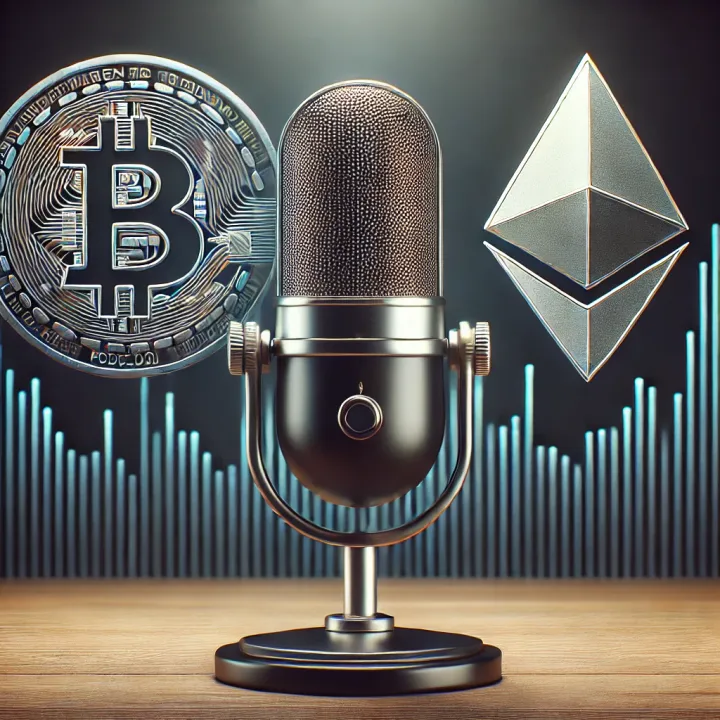Podcast: Money is Communication
"... in the future, there will be no real difference between a social app and a money app..."

Contact StJohn Piano on Tela:
tela.app/id/stjohn_piano/7c51a6
This article contains the transcript of Episode 3 of the Tela Network Podcast, which you can watch here:
Alternate link: Rumble
https://rumble.com/v41vum0-money-is-communication.html
Welcome to the Tela Network Podcast. My name is StJohn Piano, and I am a Blockchain Researcher at Tela Network.
The topic of this short episode is "Money is Communication".
Recently, I was reading a discussion about currency design, and several points were made that I thought were striking.
I won't provide a link to the source because it includes blunt discussion of the political realities of our time, and to link to it directly carries reputational risk for this channel.
The original argument is that a digital cash should be entirely focused on transfers of value from one party to another. All functionality within the coin should be devoted to this purpose. Any communication between two parties should take place in some external channel. This is the position that I held until now.
The counter-argument in the discussion was this:
Money is communication.
Every transaction begins with a conversation. During this conversation people will make commitments. Often these commitments are simply implicit.
Example: I go into a shop, I see an apple, I offer cash for the apple, the shopkeeper accepts the cash, and gives me the apple. During this transaction, we have both relied on an implicit cultural ruleset, of which the most important rules are that I will not steal the apple or attack the shopkeeper.
In a more complex transaction, such as a rental contract, or an employment agreement, there is likely to be a conversation about the nature of these commitments, before the transaction takes place.
Today, transactions are mostly performed digitally. Very little cash actually exists. All major currencies are virtual currencies. But, up until recently, the meta-communication around a digital transaction most often occurred in person.
Example: I go into a shop, I see an apple, I offer to pay digitally by card for the apple, the shopkeeper points to a card terminal, I tap my card, and the shopkeeper gives me the apple.
Increasingly, however, we do business remotely. We make agreements without meeting the other person, and on the basis of these agreements we then perform financial transactions.
So: Here is the key point that I was so struck by:
Now that we do so much business remotely, the metadata about the transaction, i.e. the conversation and the obligations between the parties, needs to be linked unbreakably to the transaction. This allows the reputation score of the participants to be tracked publicly, so that third parties can check it.
So, perhaps this is really the killer feature that blockchains can offer. Not just basic transfers of value, but also the handling of the transaction negotiation and commitments.
The commitments will need social and reputational enforcement, so the blockchain will need to be able to run a reputation system on top of the transaction conversations.

If you like this content, please take a moment to share it with someone else who would also enjoy it. Personal referrals are the best way to help a channel to grow. You can also click the like button, or subscribe to receive new content.
I'll summarise.
You can't interact with other people without communication. So you can't perform transactions in a vacuum by themselves. Cash transactions always took place within an implicit conversation. We do perform digital transactions by themselves, but we do this within a cultural framework that handles the transaction metadata. However, these days it's becoming very difficult to trust raw, basic communication. So building communication and reputation into a blockchain may well be the killer feature of the technology, the feature that makes the entire effort worthwhile.
I'll throw in one final observation from the discussion: If this is true, then in the future, there will be no real difference between a social app and a money app. Social apps will build in tools to transfer value, and money apps will build in reputation systems. They will meet in the middle. There will simply be a spectrum with apps that are either more focused on social or more focused on money. We'll need a new word to describe an app that combines both aspects.
I hope you found this interesting and insightful. Thank you for listening.
If you have any comments, corrections, questions, or suggestions, you can contact me on Tela. My contact link will be in the description below.
Take care, and good luck.
Contact StJohn Piano on Tela:
tela.app/id/stjohn_piano/7c51a6
Join Tela Network and become a consultant:
tela.network/join
Join the Tela Social channel on Telegram for all new updates:
t.me/tela_social
Follow Tela Network on Twitter:
twitter.com/tela_updates


